Art Paris is an art fair with a regional focus that gives pride of place to proximity and local sustainable solutions, especially in terms of transport and visitor management. In what was a first for an art fair, Art Paris 2022 made a commitment to developing a sustainable approach to its organisation based on a life cycle assessment (LCA)*. This pioneering approach made possible thanks to the help of Karbone Prod, in collaboration with environmental consultants Solinnen, will be renewed in 2024.
Between 2021 and 2022, thanks to the actions carried out, the fair has:
Reduced by almost half the quantity of waste produced with a decrease from 25.1 tonnes to 13.6 tonnes, in other words a 45.8% reduction.
Decreased electricity consumption by 37.2% (61,666 kWh in 2021 compared to 38,691 kWh in 2022).
Reduced its carbon footprint: 80,791 KgCO2eq in 2021 compared to 64 217 KgCO2eq in 2022.
12 tonnes of materials were reused or recycled in 2022 rather than being thrown away as during previous editions.
Notably: The brushed cotton used to cover the picture hanging systems at the fair, of which 3.7 tonnes were transformed into insulation to be used in the building industry by Minot recyclage (Lille).
Carpeting at the fair (4.3 tonnes) was collected by ArtStock to be sold at a reduced price to organisations or people who have need of it.
The life cycle assessment (LCA) takes into account a multitude of criteria to provide an overall view of the environmental impact of a product or process, listing and quantifying the materials and energy used throughout a product’s entire lifetime. Whether the subject of consideration is a product, a service or a process, every stage of its life cycle is considered to establish an inventory of the relevant inputs and outputs from cradle to grave: extraction and processing of raw materials (including energy sources), manufacturing, distribution, usage and end-of-life disposal, not forgetting the various phases of transport.
https://www.karboneprod.fr/
https://www.plinth.fr/
https://solinnen.com/
About Karbone Prod founder and Plinth co-founder Fanny Legros
After several years working in the field of photography and five years as manager of Galerie Jérôme Poggi, Fanny Legros’ experience of international art fairs and organising exhibitions led her to realise that the art world had not yet addressed the question of its green transition. In addition, insufficient tools existed to support this initiative. This realisation led her to create Karbone Prod in 2020, a consulting firm providing the necessary resources to help arts professionals calculate their environmental impact and take a more sustainable approach to their activity. She went on to co-found Plinth in 2021 together with Carole Vigezzi, which has become a reference for sharing and reusing resources in the arts sector. In 2022, she has been assisting Art Paris with the organisation of the world’s first sustainably designed art fair.
